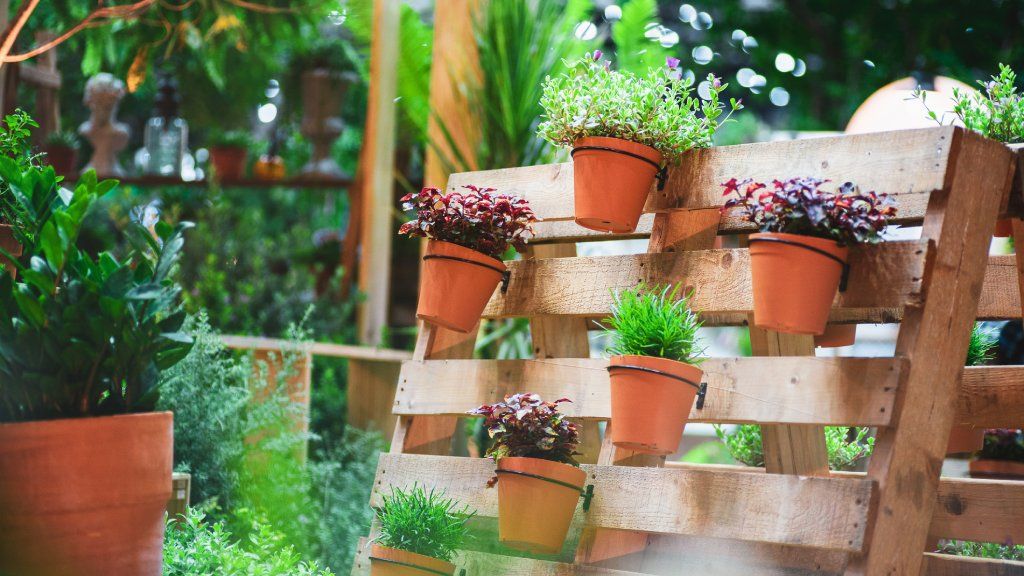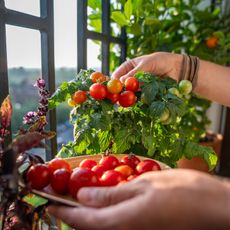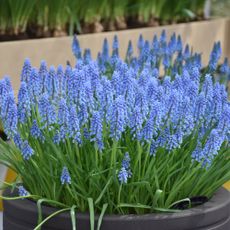How To Be Sustainable On A Budget In Your Own Backyard
Learn how to be sustainable on a budget when it comes to your garden projects. There are lots of inexpensive ways to establish green habits.

Wondering how to be sustainable on a budget? More and more people are, thankfully, jumping on the sustainable gardening bandwagon and doing their part – big or small – to slow the current unwanted environmental changes.
Some lifestyle changes are expensive while others are more budget-friendly. Take gardening for instance, a perfect example of when affordability and sustainability work together without sacrificing the end goal.
It’s true, there’s no need to break the bank to utilize greener practices in the garden. Keep reading to learn our top nine sustainable garden ideas on a budget.
How to Be Sustainable on a Budget
- Find good soil - You can’t have a garden without good soil. Composting is a low-cost method of creating nutrient-rich medium for the garden. You can trench compost or start your own compost pile, neither of which costs a penny. You can also purchase compost bins of various sizes and designs.
- Reduce water use - Another way to be sustainable in the garden while easing up on the budget is to conserve water. There are so many ways to conserve water from changing your irrigation practices to planting drought-resistant plants. If you have a sprinkler system, make sure it is in proper working order and not just spraying the driveway. Use drip lines at the root zone when possible. Also, water in the early morning or in the evening rather than during the heat of the day.
- Forget your lawn - Reduce the size of your lawn, or get rid of it altogether. Instead plant more native, drought-resistant plants. Don’t scalp your lawn. Don’t mow off more than a third of the blade; any more and the grass will require more irrigation. Leave the grass clippings behind. Don’t use a bag. The grass clippings will break down into the sod, improving the health of the turf and lessening the need to fertilize.
Tips for Affordable Sustainability in the Garden
- Avoid chemicals - Reducing your use of chemicals for the garden is a huge way to save money and the environment. Using your compost and leaving grass clippings behind are two ways to improve the soil without chemical amendments. Also, choose pest and disease-resistant plants when possible. These are also often native plants that have evolved over years to have natural resistance. Native plants are also less maintenance and often attract local beneficial pollinators.
- Plant a cover crop - Cover crops work magic, rejuvenating spent soil. They not only improve the nutrient value of soil but also help prevent erosion and runoff and improve water retention.
- Save on plants - Save seeds to use or swap with others or add to your plant collection through division or stem cuttings. Start your vegetable garden and annual flowers from seed rather than buying big transplants. Buy the smaller-sized perennials; yes, you might have a longer wait for a mature plant but it puts money in your pocket and reduces the costs of raising and shipping larger specimens.
- Keep up on those weeds - Weeds provide a habitat for pests and can harbor disease. They also compete for nutrients and water. Weeds can be suffocated using black plastic. They can also be slowed using mulch which will also retain water. You can pull or dig them up. Spray them with a DIY solution of vinegar and dish soap. Or, you can dump boiling water on the weeds. Just don’t spray them with a chemical herbicide.
Additional Budget Friendly & Sustainable Garden Tips
- Reduce or recycle plastic - Those plastic pots that plants come in from the nursery can be recycled. Some of the big box stores recycle but check with other local nurseries, your extension office, Master Gardeners program or even the city parks department. Our gorgeous local city park reuses them since they also start all their flowering annuals. I reuse them to pot up plant divisions and extra veggie starts to give to neighbors or friends.Repurpose the big plastic jugs from bleach and other products by turning them into scoops for compost, soil, etc. Repurpose gallon milk jugs into mini greenhouses to start seeds. Plastic soda bottles become self-watering bottles. Empty cottage cheese, yogurt, or sour cream containers get new life as seed-starting pots.
- Mulch - Mulch is valuable in the garden in more ways than one. It can discourage weeds, help with water retention and add nutrients to the soil to name a few. To save money on mulch, plant a living mulch (cover crop), look into sharing a truckload with a neighbor, or check with your local parks department. They may be scheduled to take trees down in your area and if you ask nicely, maybe you can take a truckload or they might even drop it off in your driveway!
Gardening tips, videos, info and more delivered right to your inbox!
Sign up for the Gardening Know How newsletter today and receive a free copy of our e-book "How to Grow Delicious Tomatoes".

Amy Grant has been gardening for 30 years and writing for 15. A professional chef and caterer, Amy's area of expertise is culinary gardening.
-
 Best Tomatoes For Containers: 10 Tastiest Varieties For Plentiful Produce In Compact Areas
Best Tomatoes For Containers: 10 Tastiest Varieties For Plentiful Produce In Compact AreasThese are the best tomatoes for containers that prove you don't need to have a large space or elaborate garden to grow delicious produce.
By Bonnie L. Grant
-
 Ultimate Potted Flowers For Spring: 8 Brilliant Blooming Options for Spring Containers
Ultimate Potted Flowers For Spring: 8 Brilliant Blooming Options for Spring ContainersCelebrate the most uplifting of seasons with the most dazzling container flowers imaginable. Here, we present some of the loveliest potted flowers for spring…
By Tonya Barnett
